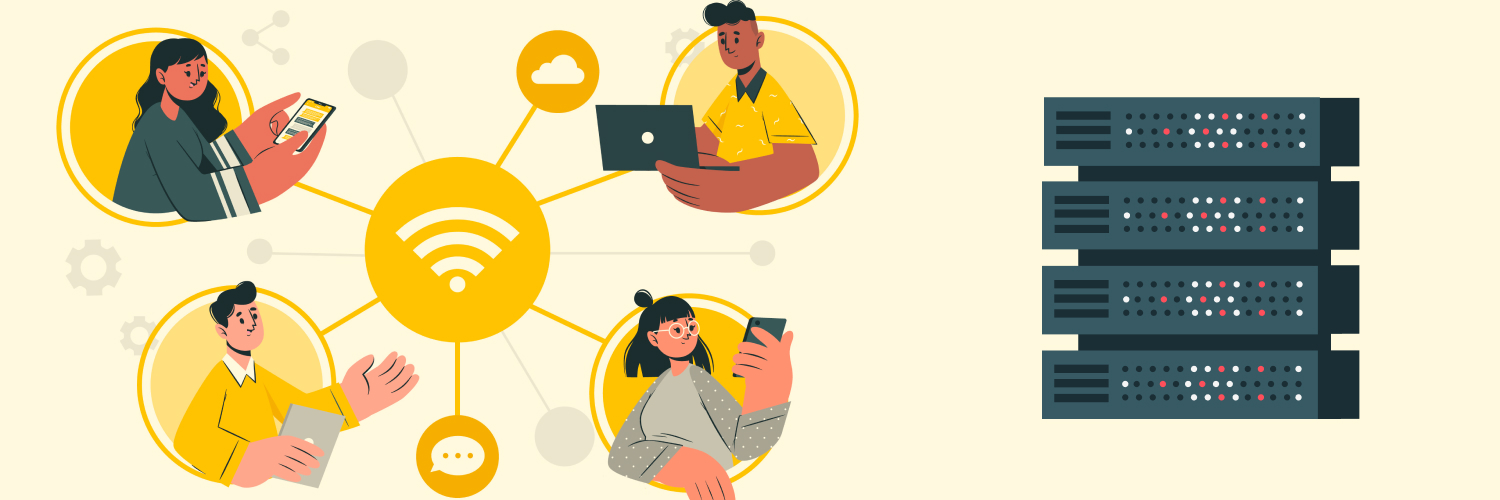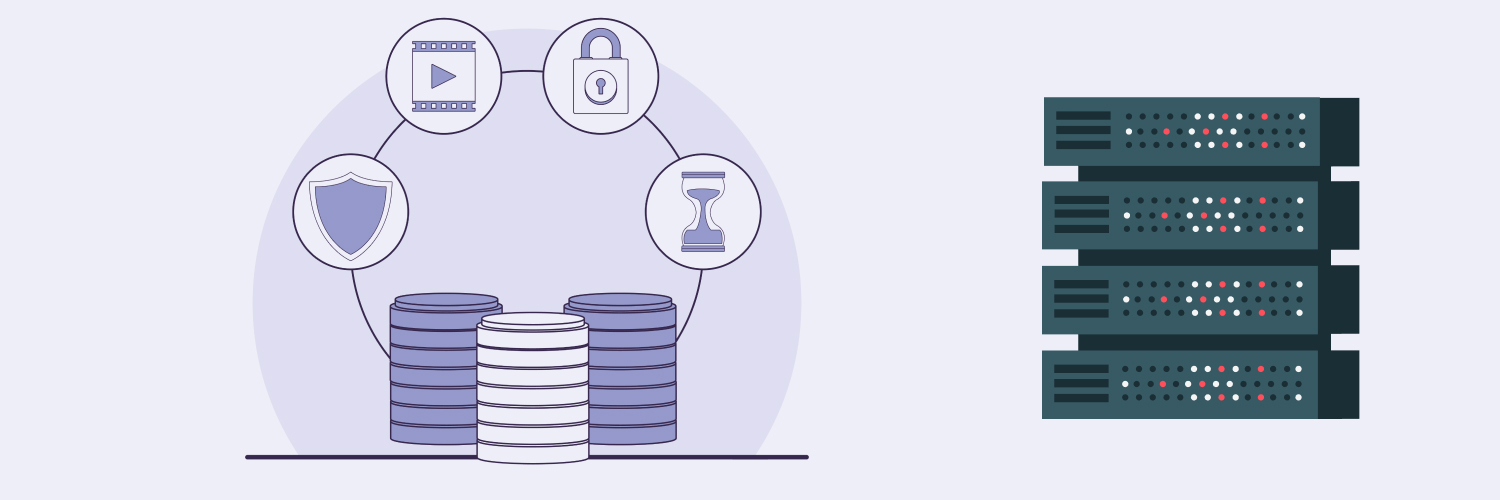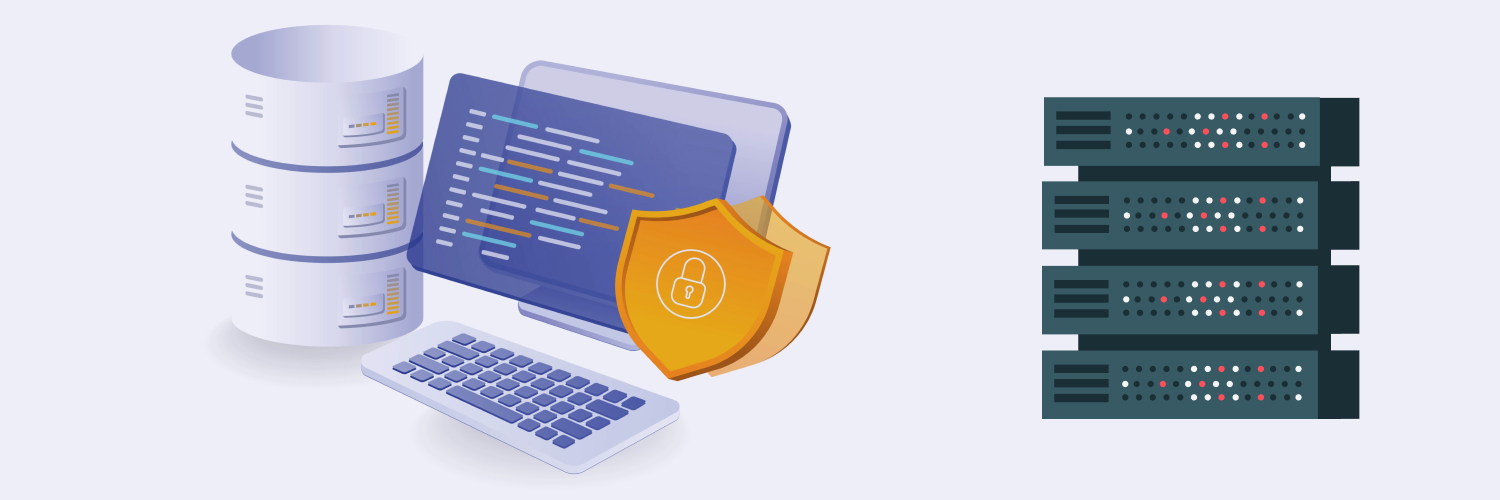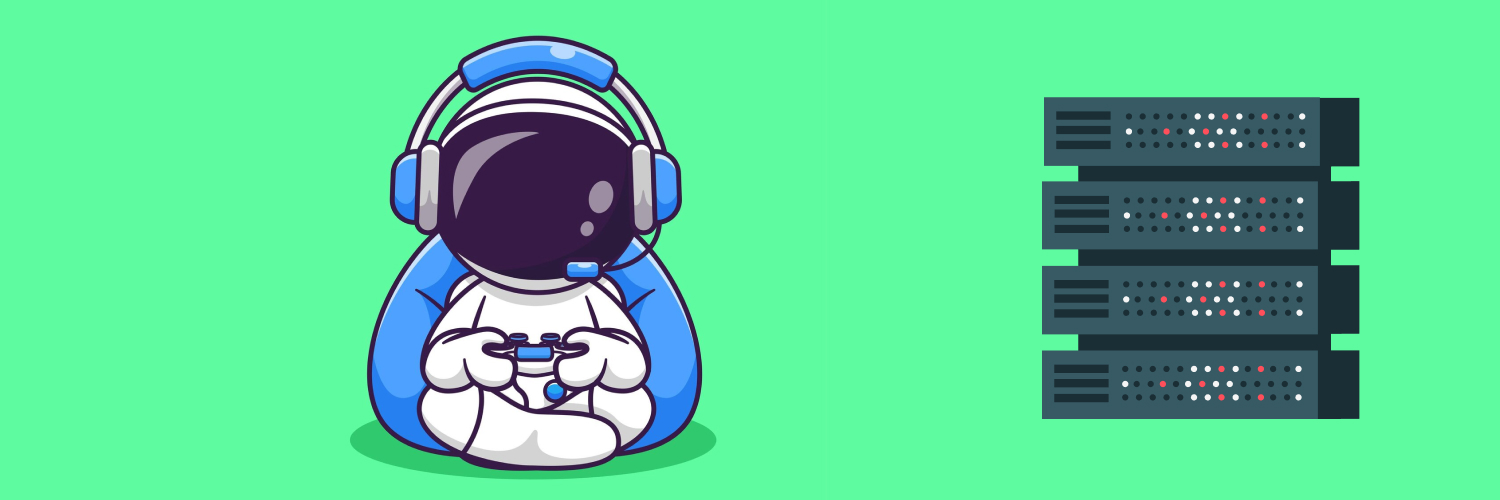A Guide To Buying The Best Proxies For Web Scraping
In a world where data is the new oil, web scraping is vital in getting the needed data for sound decision-making quickly and easily. Imagine manually searching the web for daily prices, stock levels, or product descriptions. That would be time-consuming and expensive.
Web scraping can make your life much easier, but there are certain best practices you should follow to ensure the data you’re gathering is accurate and up-to-date. One of the most important is to use the best proxies for web scraping. Proxies help to hide your IP address from the site you’re scraping, making it harder for them to identify and block your web scraping efforts.
Proxies for Web Scraping: How They Work

Web scraping is the process of extracting data from websites automatically, allowing for large-scale or repeated data retrieval that would otherwise be difficult to do manually.
Proxies will hide your IP address from the website you’re scraping. They route your requests to the website through a separate computer. This means you’re using an IP address different from your own, making it almost impossible for the website to tell it’s you even if you make multiple requests for data from the same website.
Some countries may restrict their content to only users within their country. Say you’re in the U.S. and want to scrape a website in the U.K. If you use your own IP address, the website will know that it’s coming from the U.S. and may block you. However, you can hide your IP address by using a U.K. proxy. When you send a request, the website will think it’s coming from the U.K. and let you scrape data.
Types of Proxies for Web Scraping

There are three common types of proxies that are often used for web scraping.
Data center proxies
These proxies are fast, reliable, and secure. They are the most popular type of proxy because they provide a high level of anonymity, and you can change your IP address with just a few clicks.
While data center proxies are the most affordable option, websites can block them from time to time because it’s easy to see that they originate from a data center. Moreover, since many users share the same IP address, web scraping can be slower than with other proxies.
At Rayobyte, we have three types of data center proxies you can choose from:
- Dedicated: These are static IPs for scraping with unlimited bandwidth, meaning they are fast and reliable. Only one user can use these data center proxies, which makes them the most secure option. You don’t have to worry about someone else’s bad behavior costing you access to a website.
- Semi-dedicated: Up to about three users share these proxies, and they offer affordable scraping with static IP addresses on non-major sites. If you’re looking for affordability, these proxies are a great choice — they cost significantly less than dedicated proxies.
- Rotating: These data center proxies assign a new dedicated IP address for every connection, so if you have software that makes concurrent network requests, those requests will appear as if they come from different IP addresses. Rotating proxies are more expensive than dedicated or semi-dedicated proxies, but they maximize anonymity and reduce the chance of getting banned.
Residential proxies
Residential proxies use IP addresses assigned by Internet Service Providers. The advantage of residential proxies is that they appear to be natural traffic because they have IP addresses that belong to real users. The owners of the IP address “rent” it out to proxy providers. When a web scraper uses one of these proxies, it looks like a regular person accessing the site, and it’s harder to detect and stop them. Websites are hesitant to block what seems to be a regular user who has broken no rules.
The downside is that they are more expensive than data center proxies, and the speed is slower because residential IPs rotate slower.
These residential proxies are best used for tasks requiring multiple IP addresses, such as scraping websites with sophisticated anti-scraping measures. As with rotating data center proxies, these residential proxies assign a new IP address for every connection you make.
An alternative to a residential proxy is an ISP proxy. These proxies are actually hosted by a data center but connected to major ISPs. ISP proxies have the speed of a data center proxy but are more anonymous (but still more identifiable than residential proxies). These assign one IP address that doesn’t change when making requests, so they are a good choice if you don’t need a large number of IPs.
Mobile proxies
Mobile proxies are IP addresses assigned to mobile devices, such as smartphones or tablets. Unlike data center and residential proxies, mobile proxies use the bandwidth and IP address of a mobile telecom provider plan, making them indistinguishable from regular users.
Since they use a mobile device’s bandwidth, they can bypass some anti-scraping measures. A website will typically block an IP address if it notices scraping activity coming from it. However, hundreds or thousands of other genuine cell phone users would also be banned if the website bans a mobile IP. Mobile proxies lower the frequency of bans since website owners are more reluctant to block an IP address if they know that valid users are using it.
The mobile proxies at Rayobyte use real phones and SIM cards, so when you purchase a mobile proxy, you use a real IP address from the telecom provider. This increases your anonymity while scraping for the data you require.
Other types of proxies
While we have discussed the three main types of best proxies for web scraping, there are other ways to mask your IP address. This includes using virtual private networks (VPN) and The Onion Router (TOR).
VPNs are best used if you need to access geo-blocked websites or want to browse the web anonymously. They hide your IP address and encrypt your traffic, making it difficult for ISPs, governmental organizations, and third parties to track you.
TOR is best used if you are looking for maximum anonymity while browsing the Web, as it bounces your traffic through several computers before exiting at a random IP address. However, TOR is best used for casual browsing, not web scraping, as it can be slow and unreliable.
How To Choose the Best Proxies for Web Scraping

Since there are so many types of proxies, it’s essential to understand your needs before deciding which proxy to use for web scraping.
Consider the following factors when making your choice:
- Cost: This should be your first consideration when choosing proxies. How much are you willing to spend? The best proxies are not necessarily the most expensive.
- Speed: Your proxies need to be fast for web scraping to be successful. Data center proxies are typically the best option for speed, followed by residential and mobile proxies.
- Reliability: High-quality proxies should be reliable and not cause connection issues or errors. For instance, if you are using data center proxies, they should be able to handle large amounts of requests without any problems.
- Security: Quality proxies should offer secure connections to protect your data from potential attackers.
Paid vs. free proxies for web scraping
We recommend that you avoid free proxies. Not only are they unreliable and slow, but their IP addresses are likely to get blocked by the website you are scraping. Free proxies are also not secure and may expose your data to cybercriminals. They may seem like a good option at first glance, but they come with several drawbacks:
- They may be slow, unreliable, or not offer the best security.
- Malicious actors often use them for illegal activities.
- They can go down without notice, leaving you without access to the data and information you need.
- Most free proxies don’t use HTTPS, which can put your data and personal information at risk.
- Cookies and other data could be stolen from your browser.
- They may contain malicious malware, making them insecure.
- Free proxies can also monitor your connection and steal your data.
Paid proxies provide more reliable connections with better security, faster speeds, and unlimited access. They often have additional features, such as dedicated IPs for increased anonymity and geo-targeting options.
Ultimately, the best proxies for web scraping depend on your needs and budget. If you have the budget, paid proxies are usually better than free ones. Ethical proxy providers such as Rayobyte offer secure, reliable connections and best-in-class features for web scraping. With our dedicated support team, you can rest assured that you’ll receive the best service possible. We offer a money-back guarantee trial period, so you can try our proxies for free to make sure they meet your needs.
How To Set up Proxies on AWS for Web Scraping

While AWS offers many features, such as web scraping, most websites will block your IP address if you use it alone. This is because web scraping sends many requests that could overload the website’s server.
Depending on your needs, the best proxies for web scraping on AWS are either data center proxies or residential proxies. Data center proxies are best for larger-scale scraping, while residential proxies are best used for smaller tasks that require IP rotation.
You must install the relevant software to set up either of these proxies on AWS. Then you can configure your proxies with the AWS security group settings and begin scraping the web:
- Log in to your AWS console and click Network & Security > Security Groups.
- Select the security group you want to use for your proxies.
- Click the Edit inbound rules button, add a custom TCP rule and give it a port range.
- Enter the IP address of your proxy server in the source field and save your changes.
- Now, you can use the proxy server with the port specified in your software.
Using Web Debugging Proxies for Web Scraping

Web debugging proxies such as Fiddler and Charles are free and easy to use, but they are best used for debugging rather than large-scale web scraping.
Fiddler
Fiddler is one of the best free debugging proxies available. It debugs web traffic and can be used to inspect responses from the web server. It is best suited for small-scale debugging tasks, such as checking HTTP requests, status codes, and cookies.
It intercepts traffic between your web browser and the target website, allowing you to view and analyze the requests and responses. It also lets you modify requests and test different scenarios without changing your code. You can use Fiddler for web scraping by manually entering your requests, but this isn’t very efficient.
Charles
Charles is another popular web debugging proxy, and like Fiddler, it allows you to view and analyze requests and responses. It also offers features such as SSL proxying, so you can view the contents of HTTPS requests. Charles debugs web traffic on the client side and can be used to find errors in your code. Like Fiddler, Charles is better for debugging rather than actual web scraping.
Using Proxies in Python for Web Scraping

The best way to use proxies in Python for web scraping is with the requests library, an easy-to-use HTTP library that can make requests using proxies. It supports SOCKS and HTTP proxies, so you can use both data center and residential proxies.
Several options are available if you want free proxies for web scraping with Python, but as mentioned earlier, free proxies can be unreliable and slow. To ensure a reliable connection, you should use a paid proxy provider with premium proxies.
Do You Need to Use Proxies When Scraping for Web 2.0?

Web 2.0’s dynamic nature makes it difficult to scrape. This is because the content is generated on the fly and requires cookies and session variables to render. You must use proxies to bypass these restrictions when scraping for Web 2.0 data.
Proxies offer a range of benefits when scraping for Web 2.0, such as privacy, security, and speed. They are an essential tool for scraping Web 2.0 websites, as they also provide an additional layer of security by encrypting your traffic. You can also rotate your IP address, which helps avoid detection.
Data center proxies are best for Web 2.0 scraping as they provide fast, reliable connections and can easily bypass restrictions. Slow proxies will cause your requests to time out, and returned data will be incomplete.
Key Takeaways

We recommend three main types of proxies for web scraping — data center, residential and mobile. The best use case for data center proxies is general web scraping, while residential and mobile proxies are better for tasks that require a higher degree of anonymity.
Choosing the best proxies for web scraping boils down to your specific needs, but it’s a good idea to invest in paid proxies as they offer the best performance. Free proxies may seem attractive but are often unreliable and crash without notice. Paid proxies provide reliable connections, better security, faster speeds, more anonymity, and unlimited access.
The information contained within this article, including information posted by official staff, guest-submitted material, message board postings, or other third-party material is presented solely for the purposes of education and furtherance of the knowledge of the reader. All trademarks used in this publication are hereby acknowledged as the property of their respective owners.






